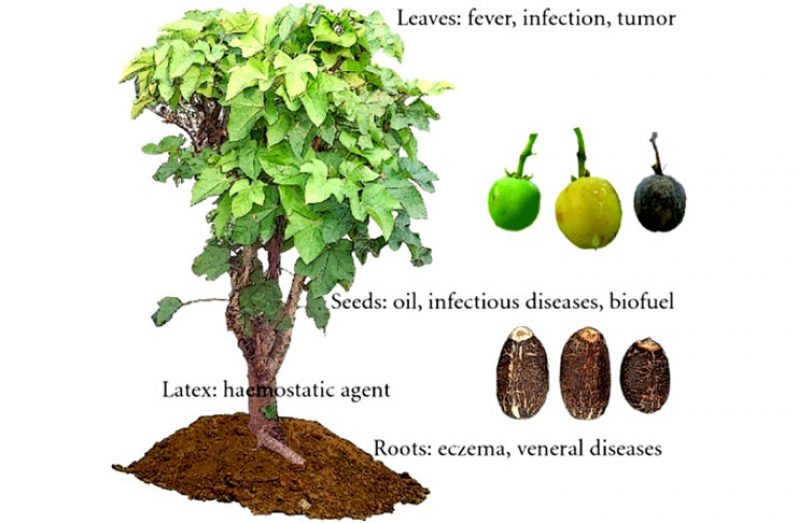A LOCAL mining company is set to embark on an ambitious biodiesel project in which the company plans to cultivate dozens of acres of jatropha plants, commonly called the “physic nut”.
The seeds of the produce when processed produce clean diesel.
Mecca Ecotech Associates have been adopting safe and easy-to-use forms of technology which the company plans to implement on its mining concessions.
The biodiesel project it plans to undertake as part of the reclamation of mined-out lands is aimed at providing employment to hinterland residents since the company plans to cultivate the crop at its mining concession lands at Imbaimadai in the Cuyuni/Mazaruni, as well as in the North West District.
Biodiesel from the jatropha plant is being propelled in India; an initiative which Neville Rutherford, of Mecca Ecotech noted can generate profitable incomes for locals once adopted on a large scale.
He said the plants cultivated are ideally suited for the country’s climate.
Jatropha oil is produced from the seeds of the jatropha curcas, a plant that can grow in wastelands across India and the oil is considered to be an excellent source of bio-diesel.
India is keen on reducing its dependence on coal and petroleum to meet its increasing energy demand and encouraging jatropha cultivation is a crucial component of its energy policy.
However, in recent times, the bio-fuel policy has come under critical review, on the way it has been promoted.
Large plots of waste land have been selected for jatropha cultivation and will provide much needed employment to the rural poor of India and at the same time businesses are also seeing the planting of jatropha as a good opportunity.
Several years ago, the Indian Government identified 400,000 square kilometres (98 million acres) of land where jatropha can be grown.
Mecca Ecotech is in the initial phase of developing its mining lands in the Imbaimadai area for various purposes during the reclamation process.
The cultivation of the jatropha plants will be done in various stages and the company plans to approach the Government with the aim of widening its plans.
The company plans to employ locals at the communities in proximity to the farms, Rutherford said of the project which will be made operational in 2017.



.jpg)











